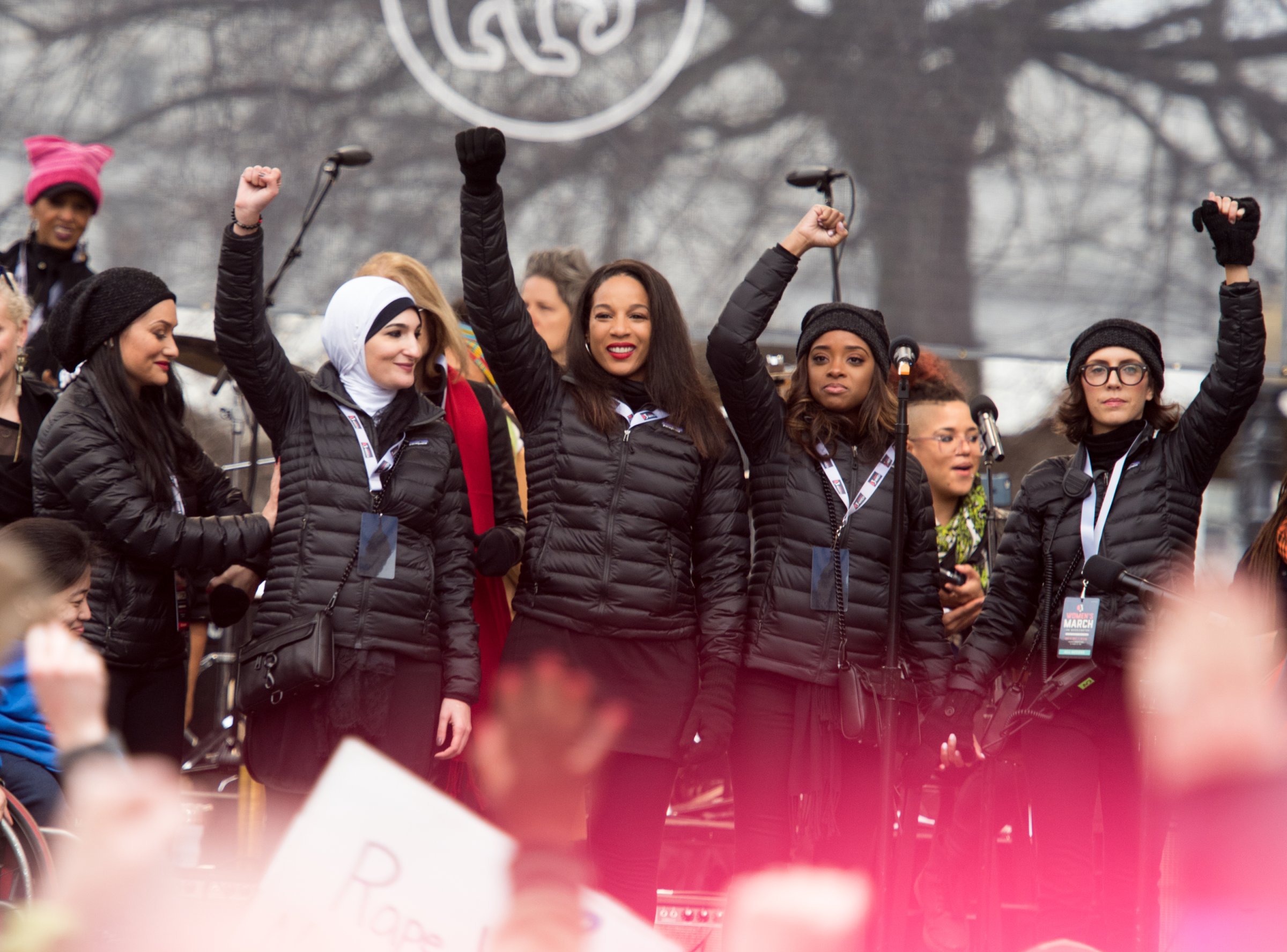
It is true that many women in the U.S. will not have the option to take the day off. We recognize that many women who work two and three jobs to support their households may not be able to strike. We strike for them. We recognize that women of color, trans women, gender nonconforming people and women with disabilities face heightened levels of discrimination, and the threat of retaliation for participation is serious. As we strike, we remember the names of Jaquarrius Holland and Ciara McElveen, whose lives were taken by violent transphobia. While there are those who have no way to participate, it is critical that all of us dig deep and ask ourselves what sacrifices we are able to make, for ourselves, our communities and our children. Social activism is not a privilege, and the most impactful actions of history have been made possible by the sacrifices of targeted and oppressed people.
Think about the Montgomery Bus Boycott. When African Americans began boycotting the Montgomery bus system in 1955, it was not clear to people what the outcome would ultimately be. For many African Americans economically excluded and oppressed by the Jim Crow system, buses were the only option of transportation, meaning walking to work was the only way to participate and support. For 381 days, walking is exactly what people did, until the Supreme Court of the U.S. ruled bus segregation unconstitutional. In California in 1965, our Women’s March honorary co-chair Dolores Huerta was one of the organizers of the Grape Boycott. Farm workers, predominantly Mexican and Filipino immigrants, were being exploited by grape growers through low wages, lack of job security and benefits and poor working conditions. For five years, farm workers went on strike and organized a solidarity boycott of table grapes that ultimately compelled the corporate growers to improve wages, benefits and working conditions. Today, we see an example of true sacrifice in the Fight for $15, where workers have gone on strike against international chains like McDonald’s. If fast food workers earning minimum wage are privileged, then I need someone to educate me on what privilege means.
Every year on March 8, International Women’s Day celebrates the social, economic, cultural and political achievement of women. It is only fitting that, six weeks after what likely was the world’s largest demonstration on behalf of women’s rights as human rights, women and our allies come together again in solidarity around this occasion. Women’s March is calling March 8 “A Day Without a Woman,” with the goal of highlighting the economic power and significance that women have on the U.S. and global economies, while calling attention to the economic injustices women and gender nonconforming people continue to face. When women miss out, we all miss out.
There are three ways that people will participate in A Day Without a Woman today. The most accessible way is to wear red, a color of revolutionary love and sacrifice. Women will strike from both paid and unpaid work, recognizing that our societies and economies are also powered by the unpaid emotional, domestic and care work that women are overwhelmingly expected to perform on a daily basis. The third way that people can choose to participate is by refraining from purchases today, with the exception of supporting local women and minority-owned businesses.
It’s exciting to see the creative ways in which people are participating. Several organizations and school districts, in Chapel Hill, N.C., and Alexandria, V.A., have announced that they will shut down for the day. More are expected to join, as a template letter to employers posted on the Women’s March website has already been accessed by 60,000 people. Men, who turned out in great numbers on Jan. 21, are using the day to take on additional domestic and caregiving responsibilities, or using the day to call for equal pay and adequate paid family leave. Yet with growing support for A Day Without a Woman, there are still those who say a strike could only work for privileged women.
Again, social activism is not a privilege. It is a necessity born out of a moral imperative and an imminent threat. We recognize that women who have privilege have a greater responsibility to leverage that and take a stand. But to truly make A Day Without a Woman effective, we need women of all backgrounds, including those whose class, race, gender identities, faiths, citizenship status and disabilities make them increasingly vulnerable. Through sound activism we will take back ownership of our lives as we continue to stand strong for all people.
Tamika Mallory is co-chair of the Women’s March on Washington.
MOTTO hosts provocative voices and influencers from various spheres. We welcome outside contributions. Opinions expressed do not necessarily reflect the views of our editors.
More Must-Reads from TIME
- Donald Trump Is TIME's 2024 Person of the Year
- Why We Chose Trump as Person of the Year
- Is Intermittent Fasting Good or Bad for You?
- The 100 Must-Read Books of 2024
- The 20 Best Christmas TV Episodes
- Column: If Optimism Feels Ridiculous Now, Try Hope
- The Future of Climate Action Is Trade Policy
- Merle Bombardieri Is Helping People Make the Baby Decision
Contact us at letters@time.com